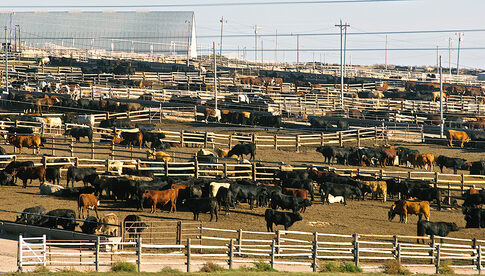Agriculture is an important economic driver in Colorado. Governor Jared Polis, on the other hand, is at odds with ranchers in Colorado over wolf management. His wolf policy has infuriated ranchers who have lost livestock. The distinction between rural and urban living is more than just superficial.
Policy Ignites Rural Resentment
Governor Jared Polis’ approach to managing Colorado’s wolf populations has sparked widespread discontent, particularly in the state’s rural areas. Ranchers are concerned that environmental concerns will trump their livelihoods. Critics argue that the policy reflects an urban-centric political agenda that appears disconnected from rural realities. This situation represents a larger tension between the state government and residents who rely on agriculture and livestock, exacerbating dissatisfaction with current leadership.
The introduction of wolves has been viewed as another example of neglecting rural economic needs. Ranchers who are financially vulnerable are concerned about livestock attacks, claiming that the policy ignores critical economic impacts. Furthermore, many people in these communities express feelings of alienation, fearing that Denver’s political decisions will ignore their experiences and priorities.
Cost to Colorado taxpayers for wolf reintroduction is out of control, and Governor Jared Polis blames the ranchers not the crazy progressives introducing predators to our state!
https://t.co/eBlzwnwxXj— Jeff Hunt (@jeffhunt) December 11, 2024
Broader Urban-Rural Divide
Polis’ wolf management policy is one piece of a larger puzzle that demonstrates a deep political divide between urban interests and rural needs. Those concerned point to a recurring pattern in which local industries appear to be undermined by larger initiatives aimed at urban constituents. They argue that strategies for wildlife conservation must take into account the complexities of rural economic dependencies. In layman’s terms, the states appear to prefer an urban lifestyle over the needs of ranchers and farmers.
“On the individual level, people can’t afford their rent or can’t afford a new home, […], where will people be able to live?” – Polis
Addressing grievances from these communities remains a challenge for state officials seeking to balance environmental initiatives with economic consequences—a task that necessitates thoughtful engagement with all stakeholders. This highlights a critical debate in Colorado’s governance: how to ensure inclusive decision-making that respects the livelihoods of those living outside of cities.
The wolf reintroduction program has been a disaster in Colorado.
And Jared Polis is blaming the ranchers… I guess they are supposed to just shut up and let their animals be killed…
"Gov. Jared Polis placed the blame for the $5 million wolf restoration on ranchers."… pic.twitter.com/74eeOIwB0V
— FreeStateColorado (@FreeStateColor1) December 8, 2024
Future Prospects and Governance Challenges
The ongoing dissatisfaction sparked by the wolf management policy is a microcosm of larger discussions about governance in Colorado under Polis’ leadership. As critics continue to raise concerns about how these policies are implemented and their impact on rural sectors, finding common ground and encouraging two-way communication becomes increasingly important.
It is worth noting that the governor’s own husband has previously spoken out strongly about the Rancher’s low priority in the state. Such remarks have created a schism in which agriculture appears to be put on the back burner. However, it is the rancher and farmer industry that supports and puts food on the table not only in this state, but across the country.
Sources:
- Gov. Polis’ plan to tackle the housing crisis sees some victories but an uncertain future
- Jared Polis Wants to Win Back the Hippies


